Kurdistan Government. If we have shown our commitment to moral aspect of arms export with Russia, it is time to act in the same manner with Iraq, and rather offer our aircraft to entity, that will always stand on our sid
“Iraqi“ Kurdistan
Iraqi-Kurdish relations have always been arduous. It’s no wonder, that after the First World War and the defeat of the multinational Ottoman Empire, western powers have radically redrawn the map of the Middle East according to their own interests. Mostly disregarding the interests of various nations living in the area. Kurds were the people who suffered the most from the politics of western colonialism. A nation of more than 30 million people, whose ancestral land has been given to four newly proclaimed states – Turkey, Iran (Persia), Syria and finally Iraq. Relations (or more accurately confrontations) between Iraqi Arabian majority and Kurdish minority in the northern and north-eastern part of the country have been, for most of the last 100 years, detrimental: there have been at least 4 major uprisings in the first 25 years. Furthermore, for the following 35 years, the Kurds witnessed 2 of the gravest full-scale wars and tenacious resistance. After that, then newly-established “autonomous Kurdistan” region participated in Iraq-Iran war. This ultimately resulted in subsequent brutal genocidal campaign of “al-Anfal” that was committed by the regime of Saddam Hussein (including the infamous chemical weapons attack on the citizens of Halabja). The aforementioned Anfal campaign resulted in the death of thousands of Kurdish non-combatants, destruction of more than 4500 Kurdish villages and expulsion of hundreds of thousands of Kurds from their homeland. Consequently, the goals and means used by the Baghdad government is clear, that majority of causalities in aforementioned conflicts were civilians. Having said this, other important aspects of Iraqi-Kurdish relations was Baghdad’s persistent effort to destroy Kurdish culture (and subsequently their national identity), or at least expulse it from strategically important regions. This effort culminated during Saddam’s rule – his arabisation programs (violent like Anfal campaign or at least discriminational) aimed at changing the ethnic composition of important areas. This included the areas around the city of Kirkuk; rich in oil, fertile Tigris basin and other, were at least partially successful. In the last 25 years, several massacres of the Kurdish population were avoided mainly due to western interventions. Firstly, by a No Fly Zone above the Kurdistan region, which turned “Iraqi” Kurdistan into de facto autonomous region, and subsequent overthrowing of Saddam Hussein in 2003, after which was Kurdish self-administration a constitutionally recognized autonomous part of the Republic of Iraq. Despite its peacefulness, this state was not a means of solution to problems but only a means of conserving them: KRG (Kurdistan Regional Government) did not include all Kurdish-majority regions, let alone areas unlawfully Arabized in last 50 years. Even today the central government is trying to block Kurdish effort to export their oil (and is still suing them over oil tanker detained in summer 2014 off the US coast). They are blocking agreements over the national budget (according to constitution, 17% of Iraqi budget belongs to KRG, central government is trying to ignore it), furthermore they ignore its legal obligation to hand part of any newly acquisitioned military equipment to KRG. Above all, they continue with efforts to seize or maintain control of strategically important traditionally Kurdish regions like Kirkuk. As we are today witnessing gradual transformation of central government into increasingly sectarian Shi’a regime under the direct influence of Tehran. Therefore, there is little hope for any major improvement of Iraqi-Kurdish relations or correction of previous injustice. In fact, because of Kurd’s rightful pursuit of full independence, we can expect further aggravation of mutual relations, even to the extent of fuelling more conflict with Iraq and/or Iran.
L-159 ALCA
ALCA (Advanced Light Combat Aircraft) is a multi-role jet fighter designed for variety of combat missions, with emphasis on air-to ground CAS (close air support) role – although it has limited capabilities of air-to-air combat. It’s available in single-seat combat and two-seat trainer version. ALCA’s main advantages are its low cost and relatively easy piloting. Close air support missions can be carried out by wide variety of modern combat equipment, which are with exception of Czech “Plamen” 20mm cannon of western provenience, like AGM-65 Maverick guided missiles and wide arsenal or unguided and guided (“intelligent”) bombs. These capabilities are supplemented by modern western-made avionics. ALCA is by its design direct successor of the infamous L-39 Albatros trainer and older L-29 Dolphin trainer, while the former is even today one of the most successful trainer jets of all time.Former inadequately high government’s order of 72 ALCAs led to a predicament, where there are 36 redundant stored jets with little chance of entering actual service. Due to this, unwanted burden of their maintenance made their sale a priority to various Czech cabinets, but necessity of approval by manufacturers of key components made any attempts to sell these jets to various third-world countries unsuccessful. However, Iraq could be an exception, as it is a key western partner in the Middle East and so it has already acquired consent to obtain even more sensitive western technologies. There are three main arguments in favour of ALCAs’ sale to Iraq: · In coming months, Iraq will probably get first of ordered F-16 fighter jets. Therefore it needs modern jet trainer to train its pilots and build a modern air force.· Due to the the conflict with Islamic State, there is urgent need of attack aircraft capable of CAS and COIN (counter-insurgency) missions. L-159 is capable of carrying out these missions, and importantly, unlike actually used Su-25s, it can carry them out while using western-made missiles and bombs.· The fighters are already manufactured and ready to be shipped. Due to nature of both previous arguments, this is an important aspect. Czech and Iraqi sides are well aware of these reasons. In fact it is surprising that the deal has not been, despite various assurances in past years, finished yet. It can be speculated, whether it is due to corruption (typical for both Czech and Iraqi governments) or to get a better offer by the Iraqi side or just due to the complicated political situation in Baghdad or for some unknown reason. However, in light of Iraq’s current situation, it is safe to say that now the deal is much closer to realization than before.
L-159 and southern KurdistanReasons for mutual convenience of the deal are being mentioned (especially in the Czech Republic) quite often, but there are also reasons against it.The entire deal as any other sale of advanced weapon systems to “hot” volatile zones has to be observed in the wider context of the situation. Much of it has already been foreshadowed in first part of this article: · Iraq has a long history of oppression, arabisation, deportations and genocidal campaigns against its Kurdish (an also Assyrian, Turkmen etc.) minority in northern part of the country. Throughout its history, Iraq has been waging various armed campaigns against any wider Kurdish autonomy or even independence (which is, according to KRG’s president Barzani, Kurdish right).· Despite the change of regime in 2003 and subsequent evolution of Iraqi-Kurdish relations, Baghdad still has serious economical, militarily-strategic, religious and political reasons to actively oppose any wider economical and political autonomy of KRG, or its independence.· There are still unsettled serious disputes over traditionally Kurdish areas outside of Kurdish direct control – both Kurdish-majority areas and recently unlawfully arabized areas.· Previous point is even more important in current situation, when Kurdish-claimed “Iraqi” areas are under Kurdish de facto administration and military control, as Iraqi army cowardly fled them in wake of Islamic state’s summer offensive, leaving the population exposed to jihadists. Other traditionally Kurdish areas, now under IS control, will probably be liberated by Kurdish Peshmerga in coming months. These areas include oil-rich Kirkuk and its countryside, Khanaqin, Jalawla majority Turkmen Tal Afar, Mosul dam, Nineveh plains, Zummar and others. After defeat of the Islamic state, there will be no reason for Kurdish authority to leave their ancestral territories, which Iraqi army haven’t been capable and willing to defend. These are the reasons why we can (and should) expect more serious issues in Kurdish relations with Iraq in coming months and years, and why we should even count with the possibility of direct military confrontation. It may be wise to summarize, who would be what side in this confrontation: · Southern (“Iraqi”) Kurdistan: Modern (or in the process of rapid modernization), territory with Erbil as its capital. Religiously tolerant (especially in the context of neighboring countries), open-minded democratic and secular country. Its political scene is traditionally dominated by two major parties (KDP and PUK), but through fair democratic process, new political party (“Gorran” movement) has been able to achieve some success recently. Islamist or communist parties are not banned, but they have minimal support of the public.
Several seats in the regional parliament are reserved for representatives of ethnic minorities (Turkmen, Assyrian, and Armenian). Concerning the secularism and democracy, KRG can be matched only by Israel in the region.
During the last years, “Iraqi” Kurdistan has managed to stay as a relatively safe country with minimal terrorist attacks – despite the sectarian chaos in other areas of Iraq. Its economy is fully opened to investment from western (and non-western) countries, most significant sector being the oil industry. Stability and security of the region, is for example, underlined by recent decision of ExxonMobil to relocate its Middle East headquarters to Erbil. Also by other important international companies, like Chevron, moving their activities to Kurdistan at the expense of unstable Iraq.
With regards to international politics, “Iraqi” Kurdistan is a long term ally of western democracies. Its most important regional partner is Israel (which is usually very sceptical to predominantly “Muslim” countries – this unusual friendship is not only the result of democratic character of both countries, but also result of cultural bonds between Jewish and Kurdish people). Relations between the Czech Republic and KRG are also unusually warm, Czech Republic has for example been one of the countries to open its consulate in Erbil.
Recently, numerous western countries started to actively support KRG in its fighting against the Islamic State. Some of them started to directly target Islamic State militants with airstrikes, others are training Peshmerga in Kurdistan or Europe, and some of them – including Czech Republic – have donated tons of ammunitions and weapons to the regional government.
Southern Kurdistan is defended by Peshmerga – former guerillas turned de facto regular army. Their soldiers are usually highly motivated, but due to old weapons usually outgunned by better-equipped Iraqi army or Islamic state jihadists. They do not possess any anti-air capabilities, which makes them very vulnerable to attacks even from light attack aircraft like L-159.· Iraq: Predominantly Arab country with center in the metropolis of Baghdad. Throughout hundreds years of its rich history, Iraq’s demography has been the cause of its most serious problems. Especially before the 2003 US invasion, Arab-Kurdish strife has been the cause of most of the internal violence. Since overthrowing Saddam’s regime, sectarian violence between Shi’a majority and Sunni minority has been heightened compared to disputes in relation to Kurdish autonomy (Kurds, although predominantly Sunni Muslims, prefer their cultural identity over religion, therefore they are usually not part of any sectarian clashes). Religious disputes have their root not only in theology, but have been exacerbated by Iraqi leaders’ politics in recent history: Saddam Hussein has been Sunni Muslim, and contrary to popular belief, increasingly less secular, especially in the last decade of his rule. Since the US invasion, Shi’a government has replaced Sunni dictator in ruling the country. During Shi’a rule, Sunnis were marginalized, harassed and the situation quite often escalated into serious sectarian skirmishes. Shi’a dominance has been one of the factors, which led to increasingly serious Sunni insurgency, which subsequently escalated into full-scale war between central government and terrorist Caliphate. Today, this Caliphate controls most of non-Kurdish Sunni areas in Iraq and large part of eastern Syria. Its expansion in Iraq has been halted mainly due to Kurdish resistance (supported by US airstrikes) in the north and Shi’a paramilitaries in the south. Although the presence of Islamic state will probably have ended in the coming months, its ruthless practices will lead to even more Shi’a-Sunni split long after it’s gone.
One of the domains, where this split could have been already seen long before the emergence of Caliphate is Iraqi army, which has been (under Maliki rule) transformed into de facto Shi’a sectarian militia, while retaining its western training (not really useful) and equipment. Unsurprisingly, Iraqi army is widely hated among northern Sunnis and in Baghdad’s Sunni quarters. Even more, after summer’s collapse of the Iraqi army, Iran-backed domestic (i.e. Badr organization, Iraqi Hizbullah) or directly Iranian militias emerged as a potent fighting force, more capable than most of the Iraqi army. After all, they are often led by the best IRGC (Iranian Revolutionary Guards Corps) commanders, including elite Quds-force’s chief Qassem Soleimani (often called “grey eminence of the Middle East”). This way, Iranian political influence on Maliki’s and subsequent Abadi’s government (both considered Iranian puppets in many western circles) has been joined by also direct military influence “on the ground”. It’s worth mentioning that Iran is not only Shi’a extremist theocracy, but also strongly opposed to Kurdish independence, which could (and probably would) boost separatist tendencies of Iran’s own Kurdish minority.
Economically Iraq is heavily dependent on oil, but its production and export efforts are often hampered by insecure situation, terrorist attacks and now also war with the Islamic state. Corruption is widespread with serious impact on Iraqi economy.
Iraqi army, however ineffective it has been during 2014, is a serious fighting force, equipped with modern American/western weapons and vehicles (although it recently purchased some Russian weaponry, namely Mil Mi-28N attack helicopters and TOS-1 thermobaric multiple rocket launcher systems), with new batches of equipment being constantly negotiated or already ordered. Most neglected part of Iraqi armed forces is the air force. Its air-to-ground capabilities are achieved by Russian-made helicopters and Su-25’s. These aircraft are, however, not capable of operating western bombs, rockets and missiles – in this situation, batch of L-159 fighters could be of great importance for Iraqi military. In the future, Iraq will be receiving Korean T-50 trainers and American F-16 fighters. Although the Iraqi air force is momentarily not the best-equipped air force in the region, it still, due to Kurdish absence of anti-air capabilities, presents a deadly menace to KRG in case of any armed conflict.
And what now?There are two antagonist entities. First of them – KRG – stands for civilized, secular and democratic world with everything they have, and especially in last few months formed a backbone of resistance to the most insane Islamic entity of the modern world – Islamic state. To us (Czech Republic), it is much closer than its counterpart, both culturally and politically. In the coming years, we cannot expect anything else than continuation of this partnership and their pursuit of independence, relying on our support. Militarily KRG is encircled by various more-or-less hostile regimes – Iran, Iraq, Turkey, Islamic state and war-torn “Syria”. It is also completely defenceless to airborne threats.
On the other side, we have unpredictable, corrupt Baghdad Shi’a regime, which has been, under the mask of democracy, fuelling sectarian violence since it came to power. Consequently, it is at least partially responsible for current IS insurgency. We are witnessing continuous Baghdad’s fall under the influence of Iranian extremist regime – one of the biggest enemies of the civilized world, with domestic and foreign policies, as well as declared goals (like destruction of the state of Israel) absolutely incompatible with any acceptable moral principles. Aside from official politics, Shi’a armed groups of questionable loyalty and moral standards are becoming increasingly an important player not only in defeating the Islamic state, but also in securing the reconquered territories. As a result, sparking further disputes with present Kurdish militias and/or Peshmerga. No doubt that current course of events, leads to inevitable confrontation between the KRG and Iraq. It is therefore utterly immoral to participate in arming the sectarian disloyal regime with weapons, which our natural ally couldn’t defend against.By sanctioning Russia, disregarding whether it was right step, the West has shown, it actually cares about moral aspects of its exports. Especially when exporting advanced weaponry, assurances that it won’t be used against country’s own civilians are an important part of the deal. The regime which cannot guarantee its commitment to fulfilling this condition should not be allowed to purchase such weaponry. Unpredictable Iraq, which cannot even guarantee that it wouldn’t end up like other Persian satrapy, certainly cannot honestly guarantee, that it won’t use Czech fighters against its own civilians. However, there is another state, which could honestly agree with this condition, that lacks any air force (and L-159 is a good trainer to start building an air force) and which has good enough relations with western countries in order to agree with the export of sensitive technologies – Kurdistan Regional Government. If we have shown our commitment to moral aspect of arms export with Russia, it is time to act in the same manner with Iraq, and rather offer our aircraft to entity, that will always stand on our side – southern Kurdistan.
One time in our history, we have already acted in a similar way: Without initial Czechoslovakian help in the 40’s, there wouldn’t be any Israel today. Now we don’t even need to directly help, to not harm would be adequate.
Dr.Yekta Uzunoglu and Onřej Hataš

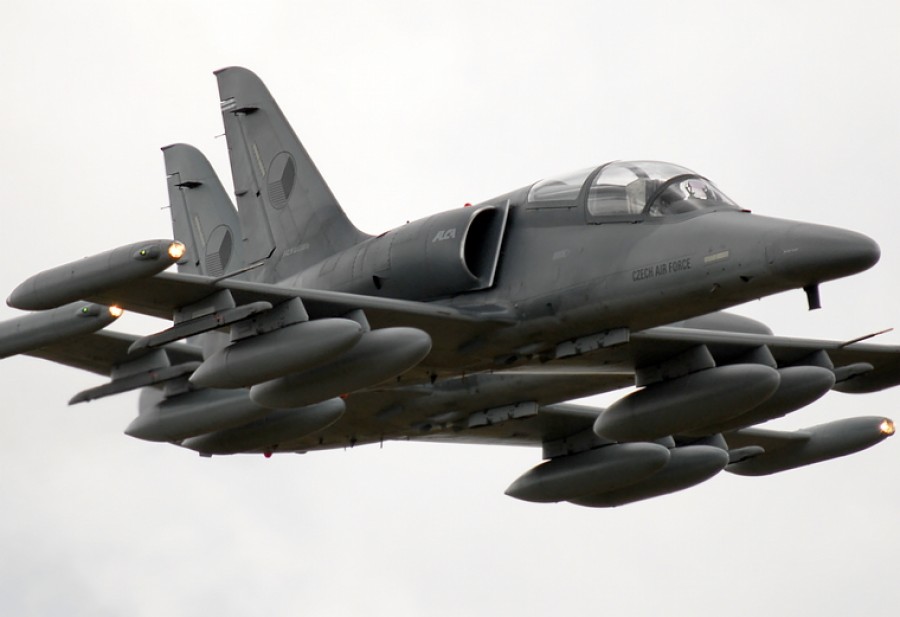
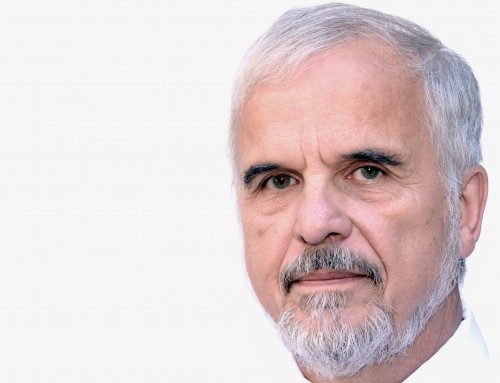
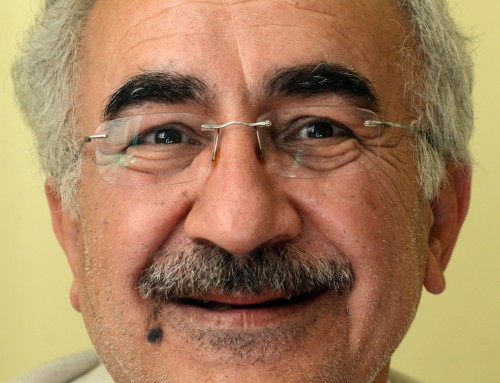
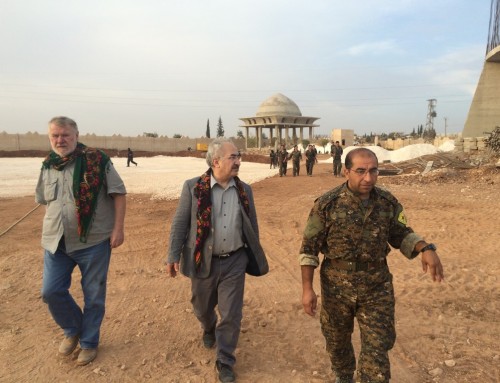
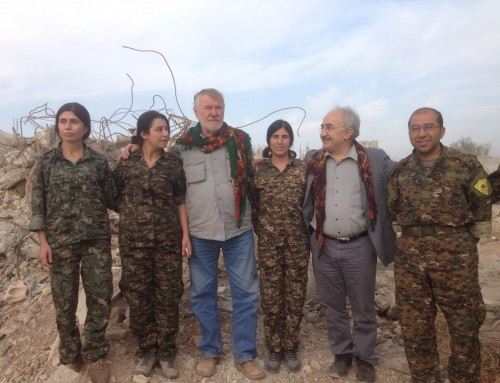
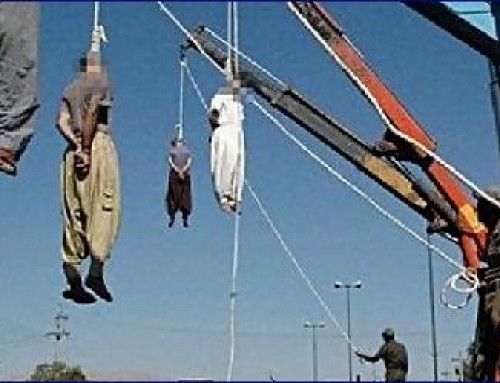
Leave A Comment